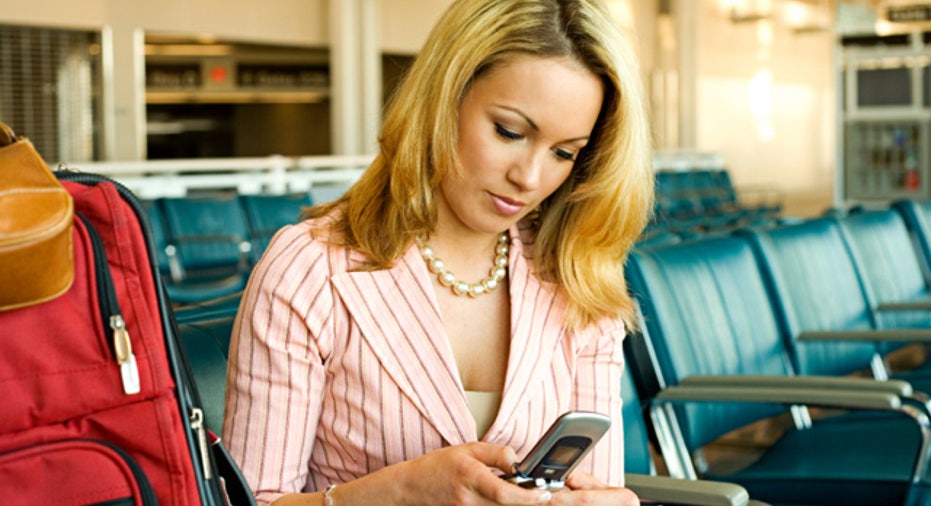Save Money on Cell Phone Charges Abroad

Saving on your cell phone abroad
Traveling abroad is already an expensive proposition. Too often, first-timers unwittingly run up major cell phone charges and end up coming home to a nasty surprise. Sure, your cell phone might work just fine as you enjoy the sights in Europe, but that doesn't mean you're paying the normal stateside per-minute rates.
"One major culprit for hefty bills is smart phones that are constantly checking for e-mail or otherwise regularly accessing data. This can rack up major data charges," says Sarah Schlichter, editor of travel site IndependentTraveler.com.
But there is hope. There are a number of ways to save money and still take your cell phone along.
Do your homework on cell phone rates
"The most important thing is to check your plan ahead of time to see what charges might apply during your trip," says Schlichter. Before you leave, you'll need to call your carrier to find out first and foremost if your cell phone works outside of the United States. Most mobile phones run on GSM, the predominant mobile network technology abroad, according to Verizon Wireless spokeswoman Brenda Boyd Raney. But some major carriers, particularly in the U.S., use CDMA.
If your phone works outside the U.S., ask for rates by country. Schlichter says to get the rates for making and receiving calls and for sending texts as well as the cost to access the Internet. Also, make sure to ask your carrier how to disable the feature on your smart phone that automatically checks for e-mail, or remember to turn your cell phone off when you aren't using it.
Save money with a global traveler plan
Some carriers help you save money by temporarily adding international access to your existing cell phone plan. The AT&T World Traveler package costs $5.99 per month and lets you take your voice service with you as you travel. With the plan, you also get discounted roaming rates. For data-heavy users, $24.99 per month gets you 20 MB of usage in more than 100 countries. AT&T devices work in more than 220 countries, with discounted roaming rates available in more than 100 of those countries.
Temporarily adding a global cell phone plan "usually only costs a few dollars per month and will give you much better rates on international calls," says Schlichter. Don't forget to have the plan removed when you return home. According to Consumer Reports, adding an international plan can save money if you are traveling for no more than two weeks and don't plan to make more than around 50 minutes of calls.
Save on cell phones with prepaid options
If you own a GSM cell phone, you can buy a prepaid SIM card -- a small plastic ID chip inserted inside your phone, often near the battery -- that can be used worldwide or in specific countries. These cards can be put into "unlocked" GSM phones, giving you lower rates on calls and text messages.
"This is often a good bet for a longer trip that will require a lot of local calls," says Schlichter. "With this option, you will have a different phone number than your usual number." If your phone is locked (they usually are), call your carrier. They should assist you in unlocking it.Prepaid cell phone cards cost $40 to $100 and are normally preloaded with 50 to 100 minutes of calling time. Make sure you use the minutes; they expire, typically within 90 days, according to Consumer Reports.
Rent a cell phone and save money
If you don't want the headache of unlocking your GSM cell phone or if you own a CDMA phone, renting a phone while abroad might save money as easily. You can typically rent a world phone from your carrier or from a third party. For example, Verizon Wireless will offer occasional travelers a "loaner" phone. With it, you pay per minute based on the rates in that region.
Schlichter says if you are going to be staying in a given foreign country for a longer period of time, renting a cell phone might not save the most since charges add up to the point where it would cost less to purchase a local phone and pay as you go.
Leave the cell phone behind
A cheaper option still is to leave your cell phone at home and use a local calling card. Prepaid calling cards are easy to use, but you can't send texts or read e-mail with them. If you decide to take your phone, consider when you are going to use it. If that's only to check in with friends and family, Schlichter says consider instead popping into an Internet cafe to send a quick e-mail. It will cost you only a few dollars for 15 to 30 minutes of Internet access once in awhile. If you need to make local calls, see if your hotel offers free or inexpensive calls.
"Before your trip, think about how you're most likely to use your phone and then do your homework to figure out which option will save you the most money," says Schlichter. "Crunching the numbers may be tedious, but it could save you quite a bit of money."



















